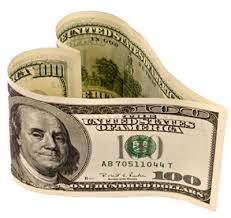Your sex life matters more on money do you need to be happy?

How much money buys happiness? A wide body of research suggests the number is approximately forty thousand dollars a year. Daniel Gilbert, professor of psychology at Harvard University, says once you have enough money to meet basic needs — food, shelter, but not necessarily cable “?incremental increases have little effect on your happiness.
To someone who just spent four years in college living off nine-thousand-dollar loan stipends, an increase to forty thousand means a lot — moving from poverty to middle class. But it’s a one-time rush. After you hit the forty-thousand-dollar-range money never gives you that surge in happiness again.

Twentysomethings who are looking for happiness from their careers will benefit from research about their parents’ choices. Richard Easterlin, professor of economics at University of Southern California says previous generations have proven that our desires adjust to our income. “At all levels of income, the typical response is that one needs 20% more to be happy.” Once you have basic needs met, the axiom is true: more money does not make more happiness.
So then one asks, what does matter? The big factors in determining happiness levels are satisfaction with your job and social relationships. And in case you found yourself slipping back to thoughts of salary, according to Easterlin, “How much pleasure people get from their job is independent of how much it pays.”
.jpg)
Unfortunately, people are not good at picking a job that will make them happy. Gilbert found that people are ill equipped to imagine what their life would be like in a given job, and the advice they get from other people is bad, (typified by some version of “You should do what I did.”)
Gilbert recommends going into a career where people are happy. But don’t ask them if their career makes them happy, because most people will say yes; they have a vested interest in convincing themselves they are happy. Instead, try out a few different professions before you settle on one. For college students, Gilbert envisions this happening with part-time jobs and internships at the cost of “giving up a few keggers and a trip to Florida over spring break.” But even if you wait until you enter the workforce, it makes sense to switch from one entry-level job to another; no seniority and scant experience means you have little to lose. So it’s an ideal time to figure out what will make you happy: Use a series of jobs to observe different professions at close range to see if YOU think they make people happy.
It’s simple, proven advice, but few people take it because they think they are unique and their experience in a career will be different. Get over that. You are not unique, you are basically just like everyone else. Gilbert can, in the course of five minutes, rattle off ten reasons why people think they are unique but they are not. For example: We spend our lives finding differences between people to choose teachers, band mates and spouses, so our perception of peoples’ differences is exaggerated… And then Gilbert gets to grapes: “If you spend seven years studying the differences between grapes, no two will look the same to you, but really a grape is a grape.”
So your first step is to stop thinking you’re a special case. Take Gilbert’s advice and choose a career based on your assessment of other people in that career. You next step is to focus on social relationships, because in terms of happiness, job satisfaction is very important but social relationships are most important.
And by social relations, most researchers mean sex — with one, consistent partner. So consider giving your career aspirations a little less weight than you give your aspirations for sex. For those of you who like a tangible goal, David Blanchflower, professor of economics at Dartmouth College says, “Going from sex once a month to sex once a week creates a big jump in happiness. And then the diminishing returns begin to set in.” He adds, to the joy of all who are underemployed, “It’s true that money impacts which person you marry, but money doesn’t impact the amount of sex you have.”
Maybe all this research simply justifies the twentysomething tendency to hold a series of entry-level jobs and put off having children. Says Karo: “All we really want is to get paid and get laid.”
Well i think money is not all that matters what matter is the relationship b/w the partners